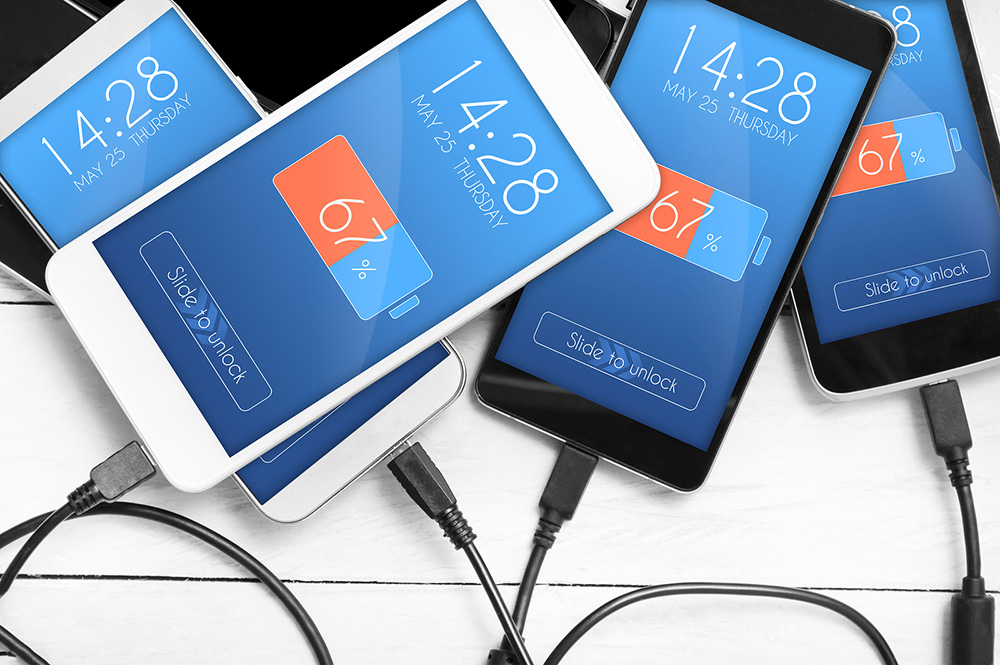No matter who you are, there’s no denying that the ubiquitous use of smartphones in today’s world has made it one of the essential components of our everyday lives.
But as great as they are, they’re only really useful when they’re actually alive. If you’re jumping around from one app to the next and leaving those apps running in the background while you’re out and about, your battery is going to drain very quickly. And for us as students, that’s definitely not a good thing especially if we need to submit an assignment or receive important emails.
So if you don’t wish to be caught in such a desperate situation, here are some useful ways to help extend your device’s lifespan.
Force-stop apps
App usage is arguably the biggest culprit when it comes to battery drainage. Having way too many on at once can exhaust your power quickly and leave you with a brick in your pocket. There are two ways though to force-stop apps from running in the background while you’re doing your own business and not checking your phone.
The first way and quickest way is to swipe those apps away from your main screen. Most phones have a button/function where it will, if pressed, bring up all the recently opened screens/ apps currently that are currently in use. They’re a lot like browser tabs, in that sense, and they can be removed with a simple swipe away from the screen which basically force quits it from being used in the background.
The other way of force-stopping apps from usage is by going into your settings and checking to see which apps are taking up the most space. Each phone will differ as to where this option is located by generally if you find an ‘apps’ option in the ‘battery/storage’ section of your phone, you should be okay. You may be surprised which apps take up the most battery life from your phone!
Reducing your screen brightness
Reducing your screen’s brightness will greatly save battery life although it will disadvantage you from being able to actually see much on your phone, depending on how much you actually reduce. If you really do need to check something important on your phone, then raise the brightness but having it as low as you can for most of the day will cut back on how much battery power your phone will extract.
Disable your wireless connection
Most of us forget to disable our wireless connection when we’re out. Sure, it’s useful for when you’re at home, work or at uni when you’re actually connected to a network but when you’re commuting, waiting for a friend or just at a location where wi-fi isn’t available, it might be best to turn off the wireless connection. And even when you’re connected through wi-fi, it might be a good idea also to turn off your mobile data and then turn it back on only when you’re away from it!
Moreover, consider turning off location services, GPS or any other wireless services on your phone. All of these contribute to battery usage and if you’re not using it, then just turn it off!
Power banks and phone battery cases
If you’ve already done all of the above but still find that your phone is running dangerously low on battery, consider investing in a power bank or phone battery cases. These are absolute livesavers and are an efficient means of avoiding peril.
Power banks are usually pocket sized chargers that you can attach to your phone directly. They’re relatively affordable and simply need to be charged enough themselves to actually be useful. An alternative option would be to carry around a phone battery case, so that you do not need to hold onto too much.
Emergency charging stations
Another means of quickly charging your phone if it’s low on battery is to find an emergency charging station. Most public locations such as shopping centres, galleries and libraries will have a charging station for you to quickly get some life back into your phone.
While many are free for use and only require you to bring an appropriate USB cord to charge, others are charging stations are paid services that are timed. These paid charging stations however are safe and secure meaning once your phone is connected, the station will lock your phone in and protect it from theft.
This story was produced by Media and Communication students at Trinity College Foundation Studies as part of Meld’s community newsroom collaboration. Education institutions, student clubs/societies and community groups interested in being involved can get in touch with us via meld@meldmagazine.com.au.

